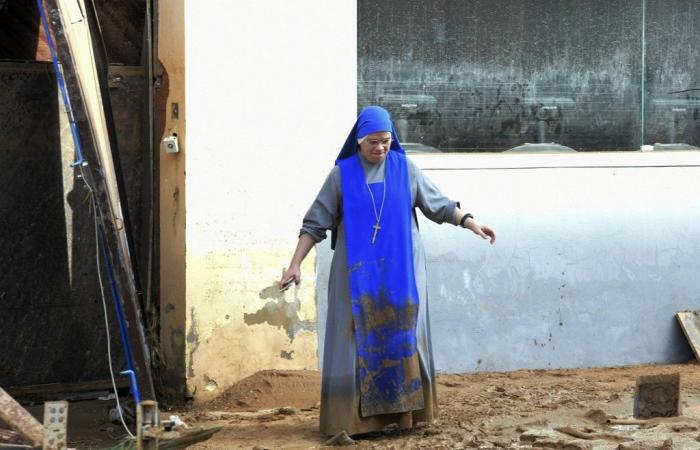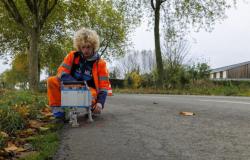The dramatic floods that occurred during the night from Tuesday to Wednesday in the south-east of Spain caused at least 211 victims, according to a latest report released on Saturday November 2 by Spanish Prime Minister Pedro Sanchez. Almost all of the victims were recorded in the Valencia region, the most affected by the spectacular bad weather. Two other people died in Castile-La Mancha and a third in Andalusia.
But this toll could rise further, with many missing people still being sought, particularly in the carcasses of cars overturned by the raging waves, which litter the parking lots and streets. The president of the Valencia region, Carlos Mazón, assured Friday evening that there was still no official figure concerning those missing, while residents without news of their loved ones increased their calls for help. help on social networks.
Four days after the disaster, new military reinforcements arrived on Saturday to help search for the missing and restore the areas ravaged by the torrents of mud. The government announced the deployment of 5,000 soldiers and 5,000 additional police and gendarmes.
Outpourings of solidarity
One of the army's priorities, in addition to the search for the missing, is to reopen the roads to allow the delivery of aid, particularly food, by clearing vehicles and rubble which prevent circulation, and to restore the order in the affected municipalities. Since the floods, the authorities have noted acts of looting and theft. The police announced that they had already arrested several dozen people, several of whom were placed in pre-trial detention.
Outpourings of solidarity continue, particularly in Valencia, where thousands of people gathered for the second consecutive day at dawn on Saturday to go on foot to neighboring towns, equipped with shovels and brooms. “Yesterday we brought tons of food and water to the most affected municipalities”assured journalists Susana Camarero, vice-president of the Valencia region, recognizing that operations were hampered by the state of infrastructure
Do not prevent the passage of emergency services
“Many villages were isolated and we called local councils to find out what they needed, but there were no phones”she recalled, while thousands of people remain deprived of communications. On Friday, the number of volunteers was such that the authorities called on residents going by car to the affected communities to stay at home, so as not to clog the roads and prevent the passage of help.
In the suburbs of Valencia, the work of rescuers and soldiers should take place under mild skies on Saturday. But the National Meteorological Agency (Aemet) warned that heavy rainfall would still occur in the province of Castellon, in the north of the Valencia region, placed on orange alert.






